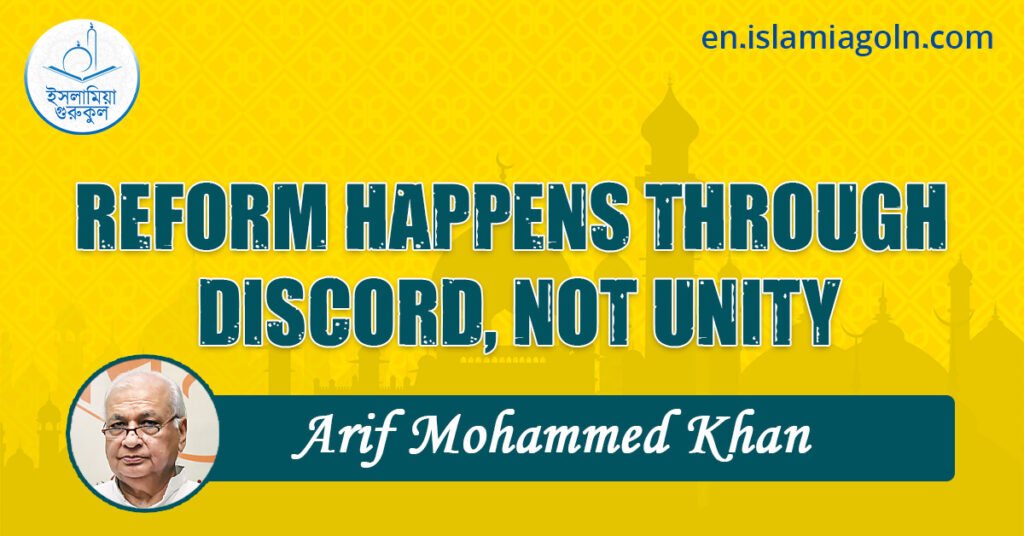Today is our Focus: REFORM HAPPENS THROUGH DISCORD, NOT UNITY
REFORM HAPPENS THROUGH DISCORD, NOT UNITY
Sir Syed Ahmad Khan (1817-1898), the great pioneer of Muslim reform in the nineteenth century is remembered every year around this time of his birthday (17 October). His contribution is all the more important, given the Muslim clergy’s utter hostility to modern education.
Justice Syed Mahmood, in a lecture delivered at Aligarh in 1893. observed that when the government established a Sanskrit College in Calcutta in 1824, it did not find favour with the leading Hindus of the city, who asked the government to start as many English colleges as possible. On the other hand, in 1835, when the government announced a programme to start English teaching in all schools, more than 8,000 moulvis submitted a signed petition to stop it.
The government responded by making formal announcements of strict religious neutrality, but the Muslim clergy persisted in their objections and declared that the philosophy and logic taught in the English language was at variance with the tenets of Islam. They interpreted the government declarations as a cunning device to deprive them of their faith, and exhorted Muslims to keep away.
In 1882, Sir Syed appeared before the education commission and produced evidence to show that Muslims had derived the least benefit from European sciences and literature From 1858 to 1878, the number of Muslim graduates was only 57, as against the total of 3.155. It was clear to Sir Syed that the factors responsible for Muslim abstention from English education and science was the bigotry of the professional clergy This explains his foray into social and religious reforms before he launched his school in 1875 at Aligarh.
In 1870, Sir Syed started a journal called Social Reformer and called for a shift in social and religious attitudes. The Urdu edition of the journal was known as Tahdeebul Akhlaq, and the front page of both editions carned a line in Arabic that meant ‘Love for the nation is an ingredient of faith, so one who endeavours to honour his nation in fact honours his faith His writings evoked strong clerical opposition, and more than 60 muftis of all leading centers of India issued fatwas declaring him a kafir (disbeliever) and a muntad (apostate)
The story did not end there. One Moulvi Ali Bakhsh decided to travel to the holy cities of Mecca and Medina to secure the fatwa of the grand mufti who readily obliged him and by declaring that Sir Syed is misguided and misleads others. He is doing Satan’s work and his mischief is worse than that of the Christians and Jews. He should be warned, if he is ignorant matters should be explained to him, if he refrains it is good otherwise he should be thrashed and imprisoned’.
After the publication of the fatwas in Indian papers, it was suggested to Sir Syed to denounce moulvi Khuda Bakhsh in his journal. Instead, he wrote a mild note saying that he was gratified that a sinful person like him became instrumental in making moulvi Khuda Bakhsh undertake the journey to Mecca and Medina! The attacks by the clergy did not shake Sir Syed’s resolve. He continued to expose their selfish and shortsighted goals, and asserted that ‘They have appointed themselves as custodians of paradise.
and disposers of disbelief and deceive ordinary people by their tricks On the question of social reforms, he refused to compromise Sir Syed said:
Most people believe that they can rid themselves of social evils by common action I do not subscribe to this view. The way to reform lies through discord and not through unity… It is for the reformer boldly to violate the customs of his group… In this he will incur a lot of popular disapprobation, but ultimately he will succeed and win converts.’
Anyone listening?
See more:

